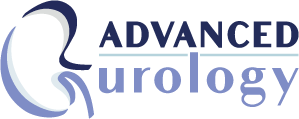Chemotherapy
What Is Chemotherapy?
Chemotherapy is the application of special cytotoxic drugs designed to either kill cancer cells or slow cancer cell growth.
Some cancers can be treated or cured by chemotherapy alone, in other cases, Chemotherapy may not be able to control cancer but may be used to relieve symptoms such as pain and help you lead a normal life.
Chemotherapy, in particular, is used in the treatment of various urological cancers involving prostate, urinary tract/bladder, testis or penis where cancer has spread outside the prostate gland to the lymph nodes, bones, or other areas (metastasis).
How Does Chemotherapy Work?
Chemotherapy drugs travel around the body and attack rapidly growing cells. As cancer cells multiply very fast, they are targeted by the drugs and are destroyed.
In addition, other normal cells that grow rapidly are also recognised by chemotherapy and killed. However, the breaks between bouts of chemotherapy allow your body to regenerate normal cells and recover before the next course.
Who is Suitable for Chemotherapy?
A Chemotherapy regimen can be considered to prevent cancer cells from dividing and growing. Chemotherapy is sometimes used if Cancer has:
- Spread outside the local organ (bladder, prostate gland, testis, penis) or
- Deemed to be at high risk of spread (metastasis)
- When other therapy is not working (ie. Hormone for prostate cancer)
Some cancers can be treated or cured by chemotherapy alone, while others may require a combination of chemotherapy with surgery and/or radiotherapy; this is known as neoadjuvant or adjuvant therapy.
Adjuvant chemotherapy can be used before the main treatment to help make the tumour smaller, or after treatment, to kill residual cancer cells that may cause problems later in treatment.
Types of Chemotherapy
There are many different types and combinations of chemotherapy used to treat various cancers.
Chemotherapy can sometimes act as a cure or may be used in combination with other procedures. Combinations can include Surgery or Radiotherapy to fight the disease.
Chemotherapy is traditionally commonly used after cancer surgery to kill any cancer cells that may be left in the lymph nodes or in other parts of your body. When it is used after surgery, it is referred to as adjuvant chemotherapy.
Neoadjuvant Chemotherapy
More recently researches showed superior outcomes when chemotherapy and other treatments were given before some cancer surgery or radiotherapy. This is called neoadjuvant therapy. There are a number of reasons why neoadjuvant chemotherapy may be offered to you.
Why Might Neoadjuvant Chemotherapy be Recommended for Me?
With neoadjuvant chemotherapy, you are likely to be given the same chemotherapy drugs that you would be given if you have chemotherapy after your surgery.
There are some benefits in having neoadjuvant chemotherapy, but it is not for everyone. You may want to consider your options carefully.
Neoadjuvant chemotherapy may be recommended:
- To improve cancer outcomes
- To enable safe and successful cancer surgery by reducing the size of your cancer (tumour), along with any other cancer cells that may be present elsewhere in the body, by killing those cancers cells prior to surgery,
- To delay surgery or radiotherapy and give you time to consider your options
How is Chemotherapy Administered?
Dr Kim works closely with experienced medical oncologists dedicated to urological cancer treatment. Chemotherapy drugs travel around the body and attack rapidly growing cells.
The way Chemotherapy is administered depends on a number of factors including:
- the type of cancer you have
- the drugs that you are taking.
The chemotherapy drugs need to enter the bloodstream but delivery methods can vary. Typically, chemotherapy is delivered as an intravenous injection. For non invasive bladder cancer, chemotherapy is administered via indwelling catheter (intravesical therapy).
Chemotherapy Procedure
Patients usually have several sessions of treatment. Each session is followed by a rest period.
Each coupling of Chemotherapy and Rest Period make up a Treatment Cycle. The number of Treatment Cycles required is managed by Dr Kim.
Side Effects of Chemotherapy
While chemotherapy is useful for the killing of cancer cells in the body, as with most other treatments, patients may experience side effects from the chemotherapy.
The different types of treatments have different effects on different people. The main side effects of chemotherapy are:
- Risk of infection due to the decline in blood cell formation because of bone marrow suppression
- Bruising and bleeding from having too few blood platelets
- Feeling sick or nausea
- Hair loss
Most side effects stop or gradually get better when chemotherapy is over. Other side effects can include:
- Neuropathy – nerve damage causing tingling, numbness, or pain in the fingers or toes)
- Fluid retention.
- Mouth sores
- Loss of appetite
- Diarrhoea
- Fatigue (from having too few red blood cells)
It is important that you tell the doctors and nurses if you are experiencing any side effects from your treatment so that they can discuss an appropriate course of action with you.
Chemotherapy in Sydney
If you would like to know more about chemotherapy in Sydney, contact Advanced Urology now!
